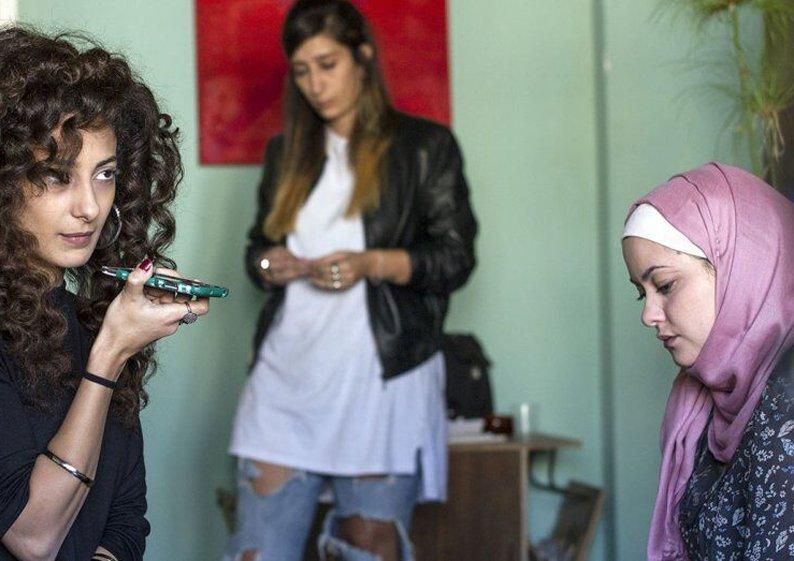

Maysaloun Hamoud's sharp and subversive debut feature explores the lives of three Arab-Israeli women caught between tradition and modernity, the dour expectations of their illiberal religious families and their own aspirations for freedom. The critical reception the film has garnered has been as starkly divided as the opposing ways of life it portrays. In Between has been heaped with awards in Toronto, Spain and Israel, while at the Cannes festival, Hamoud was presented with a young talent award by Isabelle Huppert, who called her three protagonists true heroines of our time'. Yet it has also been boycotted, and a fatwa has been declared against Hamoud (who was born to Palestinian parents, and grew up in Budapest) by a mayor of a conservative town in Israel. Her frank exploration of women's liberation is spiky, raw and real: the very qualities which make it dangerous are also those which forge its affecting power.
Salma (Sana Jammelieh), a disgruntled bartender and aspiring DJ, and Layla (Mouna Hawa), a tattooed, perpetually hungover lawyer, share a flat in the centre of cosmopolitan Tel Aviv. When a new flatmate, devout Muslim Nour (Shaden Kanboura) joins the household, the nightmarish domestic mismatch seems set to descend into awkward comedy. While the others spend their nights in a hedonistic haze of endless cigarettes and underground raves, Nour prefers to stay in, cook, and study; while they're out seducing new lovers with throwaway glances across a bar or a dancefloor, she's at home, hiding the ashtrays and nervously arranging her headscarf while trying not to burn the onions, in preparation for fraught visits from her unfamiliar fiance, the austere and disapproving Wissam (Henry Andrawes).
Though the women's lives are very different on the surface, the struggles each of them face derive from the same conflict: the dissonance between societal expectations exemplified, largely, by the men in their lives and their desire to make their own choices, whatever those might be. Nour, who's studying computer science, is palpably uncomfortable when Wissam sternly reminds her that her place is in the home; his increasing dissatisfaction with her, expressed via purported concern at the corrupting influence of the other girls, manifests, when she refuses to move out, in an act of sickening violence.
Nour's trajectory, as she gradually gains the confidence to take control of her life (with the help of a hilarious and empowering revenge scheme concocted by Layla), is the most straightforward. But while on the surface they're streetwise and assertive, the other girls' stories brim with unease. The nonchalant Salma faces the fury of her draconian father when she takes a girlfriend home to her Christian family. Layla's situation, with a boyfriend whose apparently liberal attitude is exposed as festering hypocrisy, is most ambiguous, her desires though never really articulated, most of her eloquence left to her smoke rings perhaps the most nuanced. All the girls are seeking to be understood on their own terms; all are let down by men whose love is shown to be conditional on their performing the right sort of femininity, whether expressed through cartoonish bigotry or subtle digs at dress and behaviour which unveil deep-seated, pernicious prejudices.
The film is utterly immersive, the compelling realism of its acting complemented by grungy interiors, the bright lights of the city, and a thudding electronic soundtrack (including music from Palestinian artists DAM). Towards the end, Hamoud offers flickers of hope for each of them, though the film provides no glib consolation but intriguingly, it is apparently the first in a trilogy. What's most heartwarming, and memorable, is the easy understanding that grows between the flatmates, and the empathy they show each other a total acceptance of difference which is painfully at odds with society outside the flat.
Words by Francesca Wade.
Add a comment